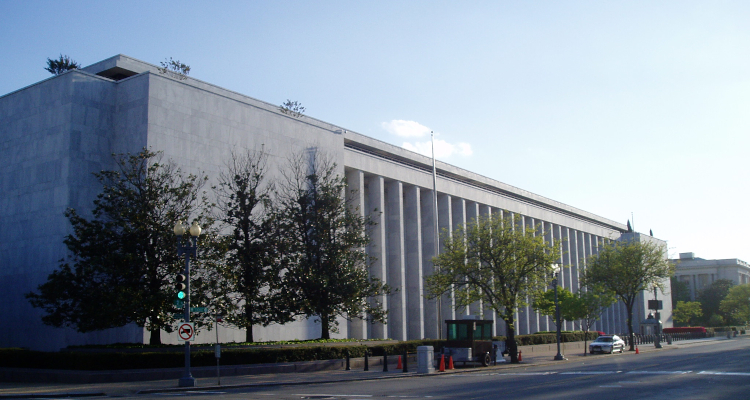Washington, D.C.’s James Madison Memorial Building, which houses the U.S. Copyright Office.
A multitude of songwriters have formally voiced their support for a United States Copyright Office (USCO) rule that would clarify the blanket-license payout process employed by the Mechanical Licensing Collective (MLC) after copyrights are terminated and recaptured.
354 individuals, Irving Azoff, The Black Keys’ Dan Auerbach, Sheryl Crow, Don Henley, Tom Morello, Dave Matthews, and John Mayer among them, signed off on the corresponding letter. The straightforward document emphasizes that its signatories “wholeheartedly support” a rule proposed by the USCO in late October of last year.
“We stand together in support of USCO’s rule and believe that anything contrary would undermine the clear Congressional intent to allow songwriters, after an extended period of time, to reap the benefit of the songs they create,” the concise message reads in part.
“It is simple, a songwriter who validly terminates a prior grant is the correct recipient of royalties collected by the Mechanical Licensing Collective. A publisher whose grant was terminated – and has received the benefit of the songwriter’s work for decades – is not the proper or intended recipient of these royalties,” the letter proceeds, having also been signed by Meghan Trainor, Sting, and an array of managers.
In brief, regarding the USCO rule proposal, stateside copyright law enables creators to terminate and reclaim the rights to works that released at least 35 years back.
Several music veterans (besides entertainment professionals outside the industry) have in recent years moved to recapture the rights to eligible 1980s copyrights. And needless to say, existing rightsholders have for obvious reasons pushed back against the efforts (and the portion of the Copyright Act that makes them possible).
(August saw the MLC publish its “Notice and Dispute Policy: Statutory Terminations,” and pages on the entity’s website include a “Termination Notice Form” and, for good measure, a multifaceted “Termination Notice Form – Information Guide.”)
Meanwhile, interested parties had until December 27th to respond to the proposed rule, which, according to the USCO’s own description, “aims to clarify the appropriate payee under the blanket license to whom the MLC must distribute royalties in connection with a statutory termination.”
In other words, the payee refers specifically to who will receive mechanical royalties from the MLC – which communicated in October that it had “distributed nearly $700 million in blanket royalties to” members – after a creator exercises his or her copyright-termination rights.
The rule would compel the MLC to pay these royalties to the individual who possesses a copyright when the song at hand is streamed – not to the entity (publisher in this instance) that owned the copyright pre-termination, when the track was first made available to stream.
The Nashville Songwriters Association International promptly came out in favor of the described USCO rule when it debuted in October, as mentioned. But National Music Publishers’ Association head David Israelite in a recent statement noted his organization’s continued support for the issue’s being addressed via legislation as opposed to the USCO.

